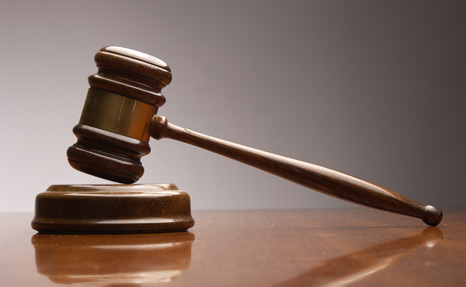Basic Law: Legislation – A Lethal Blow to the Supreme Court
The proposed Basic Law: Legislation, which was published by the Ministry of Justice just before Passover, would enable the Knesset, with a small majority of only 65 Knesset members, to reinstate laws that have been deemed unconstitutional by the Israeli High Court. IDI Vice President Prof. Mordechai Kremnitzer and Adv. Amir Fuchs warn of a threat to judicial review and civil liberties.

Prime Minister Benjamin Netanyahu said some sensible things about the role of the Supreme Court in democratic society at the recent inauguration of Asher Grunis as President of the Israeli Supreme Court: "I say that above all, in a democratic state, the body that protects and preserves those freedoms and rights is the Court... I believe that in a democracy, a strong and independent Court is what enables the existence of all other democratic institutions... Just in the last few months, I buried every law that threatens the independence of the system... and I will continue to do so. Every time a law comes across my desk that threatens to impair the independence of the courts, we will take it down."
A bill that threatens the strength and independence of the Supreme Court has again found its way to Mr. Netanyahu's desk. This time, however, it is not an esoteric bill submitted by energetic Knesset members of the National Union, Israel Beiteinu, or the back benches of the Likud; rather, it is a bill submitted by the government, which has the support of the Minister of Justice himself.
The legal memorandum on Basic Law: Legislation, which was published by the Ministry of Justice on the eve of Passover, includes a clause that is nothing less than revolutionary when it comes to the relationship between the Court and the Knesset. According to that provision, which is known as the "override clause," with a majority of just 65 Knesset members, the Israeli parliament can reinstate a law that has been deemed unconstitutional by the High Court of Justice. The implications of this are that the Knesset is being given almost unlimited power to legislate, provided that it can muster a majority, and will not have to take Israel's Basic Laws or Supreme Court rulings into account. Thus, for example, with a vote of 65 Knesset members, the current coalition could reinstate the Tal Law, which exempts ultra-Orthodox yeshiva students from army service, without making any changes to the law, despite the fact that the law was struck down by the High Court as unconstitutional.
The proposed legislation is a new incarnation of legislation that was initiated during the term of former Justice Minister Daniel Friedmann, but which was shelved - for good reason. Firstly, it must be noted that the only place in the world in which such a clause is part of the Constitution is Canada, where the clause was also subject to severe criticism. Moreover, the inclusion of the clause in the Canadian document was part of a compromise that was intended to enable the Canadian Charter of Rights and Freedoms to be applied to all the provinces of Canada. Is anyone in Israel planning to implement a full bill of rights—including the right to equality and freedom of expression—as part of the current unilateral move?
Secondly, a constitution that contains an "override clause" is a constitution that undermines its own raison d'être. A constitution is necessary primarily to protect the individual and the minority from the tyranny of the majority. If the proposed Basic Law is approved, the majority will be able to abuse the minority as it wishes. In Israel, unlike Canada, the security situation is erratic, and fear of the "other" is exploited to serve as the basis of nationalist legislation that is hostile to members of the minority and infringes on freedom of speech. (Examples of such legislation include the Admissions Committee Law, which enables small towns to reject residents who don't suit the local "social fabric"; the Boycott Law, which imposes sanctions on individuals who call for economic boycotts of settlements or Israel, and the Nakba Law, which blocks funds to organizations that observe the day of the establishment of the State of Israel as a day of mourning.) In such a climate, the "override clause" could bring the Knesset to lose all restraint. If the Knesset has final say on legislation, judicial review will lose most of its power. The main obstacle to anti-democratic legislation will be removed, paving the way for greater injury to minority populations and even to the constitutional rights of the majority (as in the case of the Tal Law).
In order to be true to his word, the Prime Minister must shelve the proposed legislation. He must bury it like the other bills that would undermine the Court's ability to protect the freedoms and rights of citizens. Anyone who values the supremacy of law should join the efforts to thwart the proposed legislation as well.
We conclude with the words of Prime Minister Menachem Begin from 1952:
"We have learned that an elected parliamentary majority can be an instrument in the hands of a group of rulers and act as camouflage for their tyranny. Therefore, the nation must, if it chooses freedom, determine its rights also with regard to the House of Representatives, in order that the majority thereof, that serves the regime more than it oversees it, should not negate these rights. It is possible to achieve this only through 'supremacy of law,' which is to say fixing the civil freedoms as the 'fundamental law' or 'supreme law' and permitting the panel of judges to cancel the validity of law if, in opposition to the fundamental law, it contradicts civil freedoms."
— Menachem Begin, Basic Outlines of Our Life Worldview and Our National Outlook (Menachem Begin Heritage Center: Jerusalem, Israel, 2007), pp. 26-27.
A Hebrew version of this article was published in Israel Hayom on April 29, 2012.
